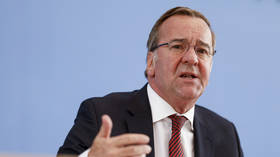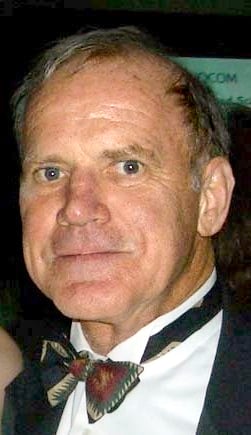The Austrian School on the Origin and Importance of Sound Money
The Austrian School of Economics offers a unique and insightful perspective on the origin of money and the concept of sound money.
Foundational figures such as Carl Menger, Ludwig von Mises, Murray Rothbard, and F.A. Hayek have extensively explored these topics, providing a rich theoretical framework that emphasizes the organic, market-driven evolution of money and its critical role in ensuring economic stability and individual liberty.
The Origin of Money

Joshua D Glawson Gold Sound Money
Carl Menger
In his seminal work, “The Origin of Money” (1892), Carl Menger outlines how money emerges naturally from the processes of trade and barter.
He argues that money is not a product of government decree but an evolutionary outcome of individuals seeking to overcome the inefficiencies of direct exchange. Menger explains that certain goods become widely accepted as media of exchange due to their superior marketability.
He states, “The origin of money is, on the whole, to be traced back to the same principles and the same forces as are operative in the formation of all other social institutions: The unintentional result of individual efforts of the members of society pursuing their own interests under the spur of competition – an evolutionary product.”
Ludwig von Mises
Building on Menger’s foundation, Ludwig von Mises elaborates on the origin of money in his work “The Theory of Money and Credit” (1912). Mises introduces the regression theorem to explain how money gains its value.
According to this theorem, money’s value is linked to its historical use as a commodity, which had value for other purposes before becoming a medium of exchange. This historical link helps establish money’s role in facilitating indirect exchanges.
Mises highlights the importance of this evolutionary process, asserting, “It is impossible to grasp the meaning of the idea of sound money if one does not realize that it was devised as an instrument for the protection of civil liberties against despotic inroads on the part of governments.”
Murray Rothbard
In his work “What Has Government Done to Our Money?” (1963), Murray Rothbard further emphasizes the market-based origins of money. He argues that money is a commodity chosen by the market, which gains acceptance through its use and the trust it inspires among traders.
Rothbard underscores that money’s value comes from its market-determined utility rather than any intrinsic properties.
He writes, “Sound money is money that is chosen by the market and not the state. It is money whose value is determined by the market and not manipulated by government.”
F.A. Hayek
In “The Denationalization of Money” (1976), Hayek expands on the concept of the spontaneous order to explain the origin of money. He argues that money is a product of the market process, developing organically as individuals seek to facilitate trade and overcome the limitations of barter.
Hayek states, “Money… developed as an institution spontaneously in the process of exchange without any deliberate intervention by the government.”
The Concept of Sound Money

The Concept of Sound Money
Sound money, according to Austrian economists, is characterized by its stability, resistance to inflation, and market origin. It is money that arises naturally and retains its value over time, ensuring economic stability and protecting individual liberties.
Carl Menger

Carl Menger Sound Money. AI-generated. By Joshua D Glawson.
Carl Menger’s concept of sound money revolves around its evolutionary market-based origins. Sound money is the most marketable good, chosen through competitive processes without government interference. It must possess qualities such as durability, divisibility, portability, and recognizability. By meeting these criteria, sound money facilitates trade and economic calculation, leading to a more efficient allocation of resources.
Ludwig von Mises

Ludwig von Mises Sound Money. AI-generated. By Joshua D Glawson.
Ludwig von Mises views sound money as a safeguard against government overreach and economic instability. He argues that sound money is essential for protecting civil liberties and ensuring accurate economic calculation.
By maintaining a stable value and resisting inflation, sound money provides a reliable store of value and medium of exchange.
Mises states, “Sound money still means today what it meant in the nineteenth century: the gold standard.”
Murray Rothbard

Murray Rothbard Sound Money. AI-generated. By Joshua D Glawson.
Murray Rothbard’s definition of sound money emphasizes its market origin and its role in preserving economic freedom. He argues that sound money is free from government manipulation and inflationary policies, ensuring that individuals’ savings and wealth are protected.
Rothbard highlights that sound money is crucial for accurate economic calculation and the efficient functioning of the market economy.
He asserts, “Sound money ensures economic freedom and guards against the depredations of government power.”
F.A. Hayek

F.A. Hayek Sound Money. AI-generated. By Joshua D Glawson.
Friedrich August von Hayek’s concept of sound money aligns with the broader Austrian tradition but also incorporates his unique emphasis on decentralization and competition in currency issuance. He advocates for the denationalization of money, arguing that allowing private entities to issue currency could lead to more stable and sound money.
Hayek believes that competition among private issuers would prevent inflation and ensure that only sound currencies would survive in the market.
He states, “I do not believe we shall ever have a good money again before we take the thing out of the hands of government, that is, we cannot take it violently out of the hands of government, all we can do is by some sly roundabout way introduce something that they can’t stop.”
The Importance of Sound Money

The Importance of Sound Money
The Austrian School underscores the importance of sound money in 4 key areas:
- Economic Stability: Sound money maintains its value over time, providing a stable foundation for economic activities. It prevents the distortions caused by inflation and arbitrary changes in the money supply, allowing businesses and individuals to make long-term plans with confidence.
- Protection of Civil Liberties: Sound money serves as a check on government power. By limiting the ability of governments to inflate the currency and manipulate the economy, sound money protects individual property rights and ensures greater economic freedom.
- Efficient Resource Allocation: Sound money facilitates accurate economic calculation, enabling businesses to allocate resources efficiently. It provides a reliable unit of account that reflects true market conditions, promoting better decision-making and investment.
- Trust and Confidence: Sound money builds trust and confidence in the economic system. Its stability and market-based origins ensure that it is widely accepted and trusted as a medium of exchange, store of value, and unit of account.
Insights from Joshua D Glawson

Insights from Joshua D Glawson – Gold Coins
In his article “Austrian Economists and the Value of Gold as Sound Money,” writer Joshua D Glawson highlights the primary qualities of sound money, specifically focusing on gold as an exemplary form.
According to Glawson, the 7 key highlights of sound money are:
- Durability: Sound money must be able to withstand the test of time without deteriorating. Gold, for instance, does not corrode or degrade, making it a durable store of value.
- Divisibility: Sound money must be easily divisible into smaller units to facilitate transactions of varying sizes. Gold can be divided into smaller quantities without losing its value, which is crucial for its use as money.
- Portability: Sound money should be easy to transport and transfer from one person to another. Gold’s high value relative to its weight and volume makes it portable and convenient for trade.
- Uniformity: Each unit of sound money must be the same as every other unit. Gold coins and bars can be standardized in terms of weight and purity, ensuring uniformity.
- Limited Supply: Sound money should have a limited supply to maintain its value. Gold’s scarcity ensures that its supply cannot be easily increased, protecting against inflation.
- Acceptability: For money to be sound, it must be widely accepted in trade. Gold’s long history of use in various cultures and economies has established it as a widely accepted medium of exchange.
- Stability: Sound money should maintain its purchasing power over time. Gold has historically been seen as a stable store of value, protecting against the erosion of wealth through inflation.
These qualities make gold an excellent medium of exchange, store of value, and unit of account, fulfilling the functions of money in a stable and reliable manner. Glawson emphasizes that these characteristics are why Austrian economists hold gold in high regard as the ultimate form of sound money.
Conclusion

Austrian Economists celebrate sound money
In conclusion, Carl Menger, Ludwig von Mises, Murray Rothbard, F.A. Hayek, and Joshua D. Glawson provide a comprehensive understanding of the origin and importance of sound money.
Their insights highlight the critical role of market processes in the development of money and the essential qualities that make money sound.
By ensuring economic stability, protecting civil liberties, and promoting efficient resource allocation, sound money remains a cornerstone of a healthy and free economy.
Become a Patron!
Or support us at SubscribeStar
Donate cryptocurrency HERE
Subscribe to Activist Post for truth, peace, and freedom news. Follow us on Telegram, HIVE, Minds, MeWe, Twitter – X and Gab.
Provide, Protect and Profit from what’s coming! Get a free issue of Counter Markets today.




